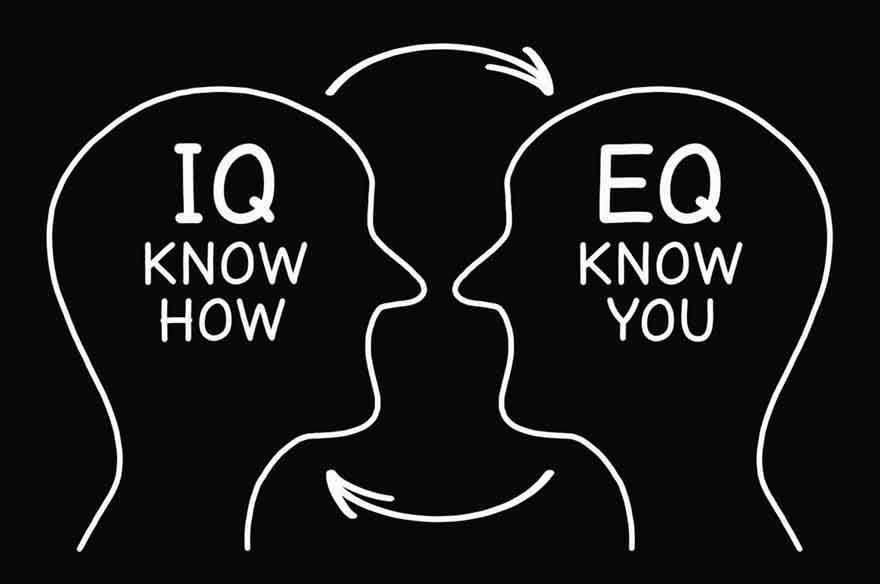Raising an emotionally intelligent child can be a puzzle for some. You want to be able to strengthen your child’s ability to relate and socialize with other people, especially if they happen to have difficulty with emotions in general, like those with autism.
Given it’s a relatively new concept, though, how you were raised can seem completely different to how raising a child with high emotional intelligence can be. After all, “emotional intelligence” wasn’t coined until 1990, and even back then, we didn’t view it as something parents should strengthen within their children.
If you’re hoping to raise your child to be highly emotionally intelligent, that is a very respectable goal. I have some tips you can follow, as well as a basic introduction as to what emotional intelligence even is.
What is Emotional Intelligence?

Emotional intelligence is a term that is defined by a person’s ability to manage and express their emotions, as well as their ability to respect and understand the emotions of others. We think of it in the same way as IQ, and because emotional intelligence is related to IQ, we tend to use the shorthand “EQ”.
Those who are considered highly emotionally intelligent can express their feelings and emotions with ease, and they do not hold back, whether it be through laughing, crying, getting angry, etc.
What are the Benefits of Emotional Intelligence?

If you’re strengthening your child’s EQ, you’re positively affecting their future and promising them a life full of strong relationships, including the one between them and you.
Here are some of the more exact ways you are positively affecting your child’s future by investing time and patience in raising their emotional intelligence:
- Children with higher emotional intelligence tend to have better relationships. They can manage conflict and develop deeper relationships with friends, professional acquaintances, romantic partners, and family.
- Studies have shown that children with higher emotional intelligence tend to do better on standardized tests. AKA, a high EQ means a high IQ.
- Children who were raised to be highly emotionally intelligent are less likely to develop mental health issues such as anxiety or depression, among other mental illnesses.
- In a study from the American Journal of Public Health, it was found that a child’s social and emotional skills could very well predict their success later in life. Those with a high EQ were more likely to get college degrees and full-time jobs by the age of 25. Investing in their emotional health is investing in their future.
Now that we’ve covered the basics of emotional intelligence and how it can benefit your child, let’s get into just how you can go about strengthening it.
1. Display Empathy

Remember that you (and any partners you have) are the biggest role model your child has. If you show that you are able to understand and relate to your kid’s feelings, they are likely to reciprocate this behavior with others.
We tend to see children as being emotionally undeveloped who don’t actually know what they want or need. This may be true, but it doesn’t mean that their emotions are invalid. Their emotions are just as important as yours, and if you can’t show empathy for how they’re feeling, then why should they show empathy for anyone else, including you? Phrases like “I get sad when I can’t do what I want, too,” will go a long way to teaching your child that you understand them.
Even if you don’t understand why your child is upset, empathy shows your child that you at least care about them, and they’ll be better able to express their feelings without having to scream, cry, and stamp their feet.
2. Develop Their Problem-Solving Skills

People would usually associate this with IQ rather than EQ, but it benefits EQ just as much.
If your child is getting upset, you need to help them identify solutions to their problems. If they’re upset because of an outside problem affecting them, such as their sibling is annoying them, make sure you comfort them, but you should also help your kid find five solutions. Help your child weigh out the pros and cons of each solution, and then allow them to pick the best one.
Now, if your child is upset because they made a mistake, the last thing you want to do is get emotionally upset yourself. Instead, you should talk to them about what they could have done differently. Don’t try to outright solve their problems, but allow them to figure it out for themselves.
Why is this important? Well, it teaches your child that not all problems require an outright emotional response. Instead of getting emotional as a reaction to a problem, they can instead calm down and think about how they can solve their own problems and reflect on mistakes.
3. Label Their Emotions

One of the best ways to help them grow their emotional intelligence is by allowing them to understand their own emotions. This can be done simply by putting names to the feelings they’re experiencing. After all, a four year old may not completely understand why they’re upset. They may know about “mad” or “sad”, but may not know about more complex emotions, like “disappointment”. You can use an emotions color wheel to help you with this task.
When your child is noticeably emotional, talk to them and help them to identify what they’re feeling, here is how to identify home emotion for example. Use words that denote certain emotions. Remember to address positive emotions, as well as negative.
Here are examples of phrases you can use:
- “Are you mad about that mean kid at the playground?”
- “Are you disappointed you didn’t win?”
- “Are you excited about going to the fair?”
- “Did the ending of the movie make you sad?”
Another benefit of using this type of language is that it can help your child communicate their feelings in the future if you’re not sure why they are emotional. It’s a big benefit for your child to tell you they’re angry about something instead of having to figure it out for yourself. It strengthens the relationship between you two in the long run and helps them understand their own emotions.
4. Present Appropriate Ways to Express Feelings

Children, especially young kids, tend to have a hard time expressing their emotions. You may recognize that kids who don’t know how to properly convey how they feel will instead use methods that can seem fairly dramatic. Screaming, stomping their feet, hitting things, saying mean things, the silent treatment; all of these are common responses from an upset child who doesn’t know how to convey their emotions. Here is how you can use the emotion wheel specifically for young kids.
Because of this, you should find alternative ways to help your child express their feelings. The most common is just saying it out loud, as it’s the simplest and most straightforward. Make sure they’re able to express what they feel, and most importantly, why they feel that way. “I feel mad when my brother calls me that name” is a great example.
However, if your child is non-verbal or just can’t speak yet, you may have to go other routes, such as having them draw a face to express what they’re feeling or over-exaggerating their expressions. It’s vital you let them know that screaming and throwing things is not okay.
>> Check out our interactive Emotion Color Wheel.






